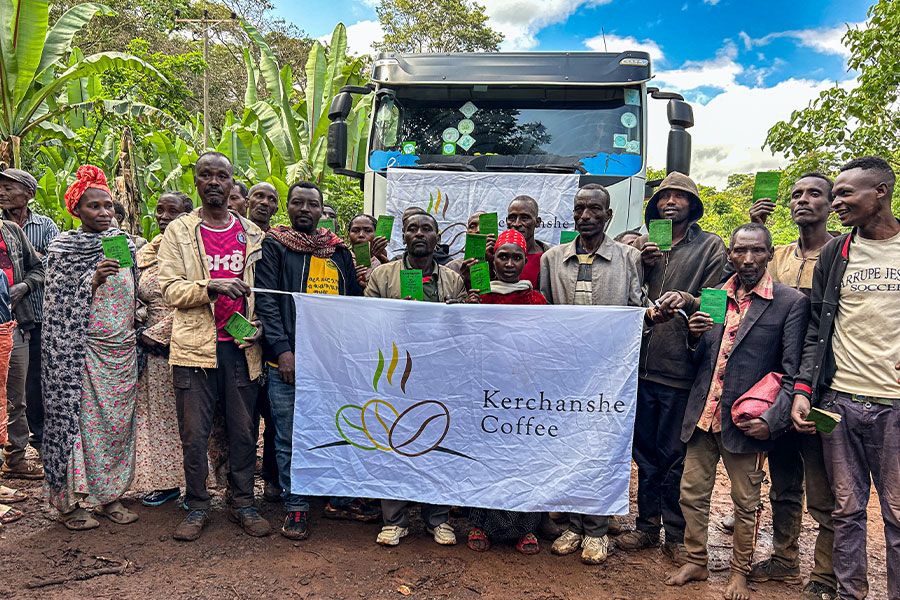
Advertorials | May 30,2025
Ethiopia’s growth prospects will flatten next year for the first time since 2003 when the country’s economic expansion dove below zero as a result of drought. The latest estimate was made by the International Monetary Fund (IMF), which released its regional economic outlook for Africa on Thursday, October 22, 2020.
IMF’s grim projection came at a time when Ethiopian authorities are upbeat on the economy, claiming that growth in the last fiscal year was as high as 6.1pc, way above the average for oil-importing economies in Africa at 2.5pc below zero. Presented by Abebe Aemrosellasie, Africa Department director, the IMF estimates economic growth for Ethiopia this year to drop down to 1.9pc, a level last recorded in 2002.
Yinager Dessie (PhD), governor of the National Bank of Ethiopia (NBE), differed on this point in his media briefing last week.
"The economy is moving forward despite the challenges including COVID-19," he told journalists.
However, the IMF attributed the decline in economic growth for the continent and Ethiopia to the severe impacts of the Novel Coronavirus (COVID-19) that spread since early this year. At a press briefing on Thursday on the sidelines of the IMF biannual meeting of central bank governors and finance ministers, held virtually, Abebe described the impact on Africa as “an unprecedented health and economic crisis.”
This has brought the worst outcome on record for economies in the continent where only 11 countries in Sub-Saharan Africa, including Ethiopia, are expected to register positive growth, however small the margins will be. The hardest hit will be Seychelles and Mauritius, two of the most attractive destinations for tourists travelling to Africa.
“Within months, the spread of the virus has jeopardised years of development and decades-long gains against poverty in the region while threatening the lives and livelihoods of millions of people,” reads a statement the IMF issued.
It is evident that after the pandemic, developing and underdeveloped countries dependent on financial assistance, remittance and FDI are going to be heavily impacted, according to Wasyhun Belay, an independent economist with a decade of experience.
“The same is reflected in Ethiopia as well," he said. "The economy has shut down [with everything] from tourism to exports to investments and FDI inflows dwindling."
Policymakers in countries in Africa reacted in a range of ways, from comprehensive to partial lockdowns, hoping to protect their citizens from the public health risks of the spread of the virus. However, this has brought unintended consequences to their respective economies such as sluggish economic activities and fiscal responses. Authorities in Ethiopia have chosen to avoid a total shutdown of the country but had imposed a state of emergency and limited movement while mandating the use of masks.
Such measures will have the effect of pulling the economy down to almost flat next year, a time the IMF forecasts many of the economies in Sub-Saharan Africa will rebound. The average growth in gross domestic product (GDP) for non-importing countries in Africa will surge to 3.6pc, according to the IMF.
Even though avoiding a lockdown was a health measure, unavailability of a stimulus package, especially for consumers, had serious effects on the economy, according to Getachew Asfaw, an economist specialising in national economic planning.
Ethiopia’s economy will experience its acid test in 2021, where an economy that will not grow will also experience an annual inflation rate of 11.5pc and a negative fiscal balance of 3.1pc. The country’s current account deficit will remain at negative 4.6pc, increasing marginally from the current year, and public debt will surge back to 58.5pc, increasing by 2.5pc points.
However, Wasyhun says that the IMF's projection is too pessimistic, saying that there is no way Ethiopia would lose a chance of growth as compared to Botswana and Eritrea.
“The situation in the country isn’t as grim as the IMF pictures it,” he said.
Getachew, who views the nation's economic situation as bleak, disagrees with Wasyhun.
"There is no reason that will hold us back from agreeing with the IMF's projection," said Getachew. "The figures coming from the government don't reflect what is on the ground in the economy. They're very exaggerated."
The National Income Accounting Department under the National Planning & Development Commission, which is in charge of conducting macroeconomics analysis, is not independent, he countered.
"It's issuing a projection that is highly influenced by politics," said Getachew.
The declining trends of public debt, including what Ethiopia owes to foreign creditors, has been a source of pride to the administration of Prime Minister Abiy Ahmed (PhD) lately. The ratio of Ethiopia’s debt to external lenders to overall debt will see a rise by 3.5pc from the 29.2pc recorded this year. If there is any solace to the administration, it will come from the foreign exchange reserves that will be sufficient to cover the value of imports for 2.7 months, up from 2.1 months this year.
The IMF foresees policymakers in countries such as Ethiopia facing the tough choice between “saving lives and protecting livelihoods through health spending” and providing “income and liquidity support for households and businesses” on the one hand and sustaining growing macroeconomic imbalances in the budget deficit and inflation.
“Countries will have fewer resources and more difficult choices to make,” said Abebe. “No country should have to choose between paying its debt and providing food and medicine to its people.”
It seems inevitable for policymakers in these countries to make such painful choices when the resource gap remains a staggering 290 billion dollars, despite private investments, loans, grants and debt relief that it is hoped will cover some of the 890 billion dollars Sub-Saharan Africa is thought to require in additional financing through 2023.
“As the region looks toward the future, uncertainty over the path of the pandemic continues to loom over an enduring recovery,” the IMF says in a statement.
The IMF urges countries in Africa to push for more grants, concessional credit and additional debt reliefs as measures to overcome trying times ahead.
Wasyhun also says that there are issues the government should focus on to achieve its optimistic growth rate. He mentions revenue mobilisation and political instability as major areas that need a close focus from the government.
The government needs to be transparent with its output, including allowing these kinds of growth projections to be assessed by independent economists on the institutional and independent level, according to Wasyhun.
"It’s definitely going to be a hard time for the government and needs a more stringent measure, but it’s still survivable," he said.
PUBLISHED ON
[ VOL
, NO
]

Advertorials | May 30,2025
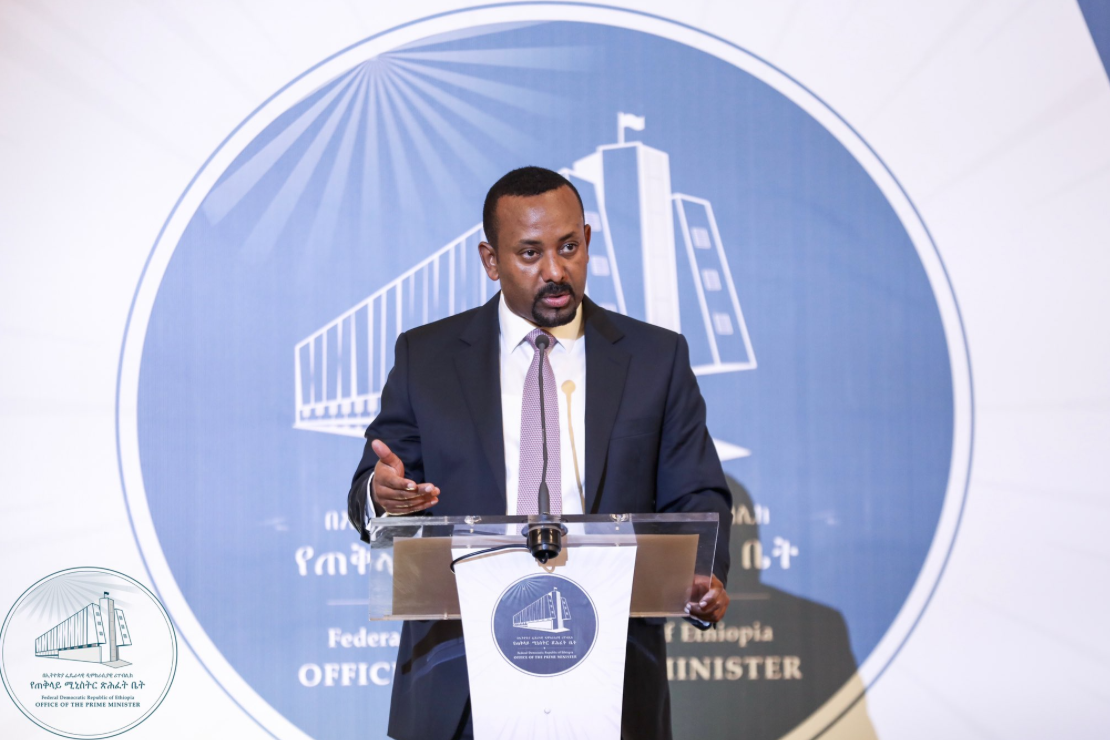
Fortune News | Mar 23,2019

Sunday with Eden | Jul 27,2019
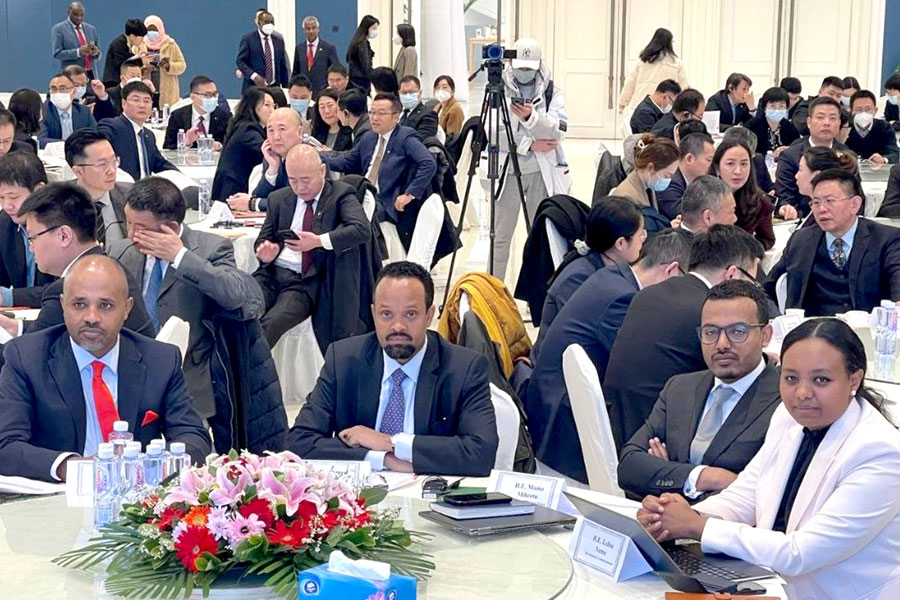
Fortune News | Mar 25,2023
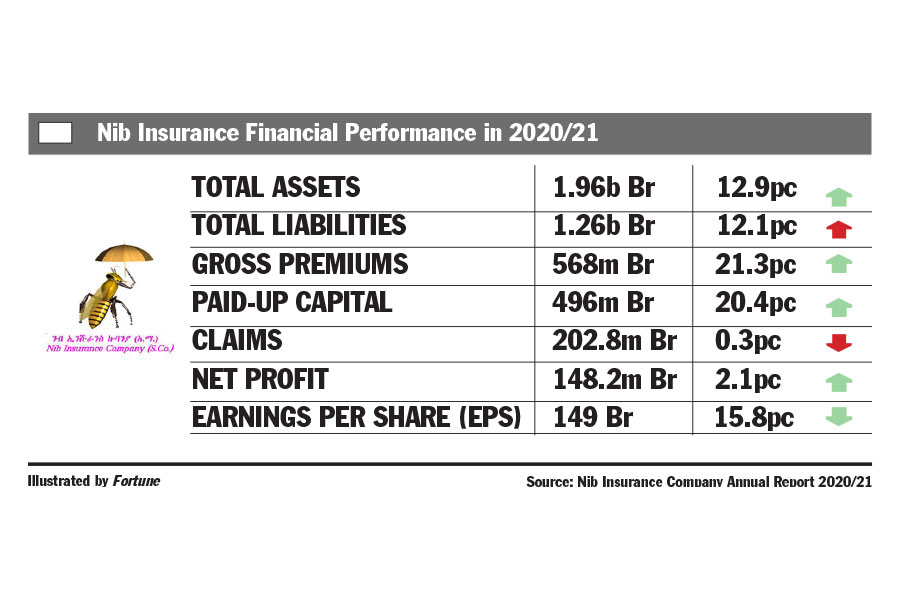
Fortune News | Jan 01,2022
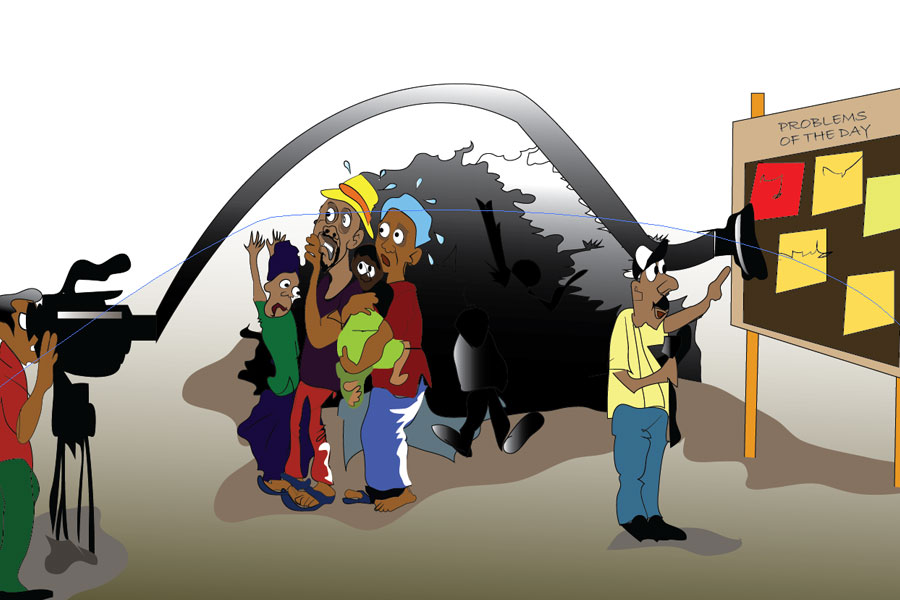
Editorial | Jan 18,2019
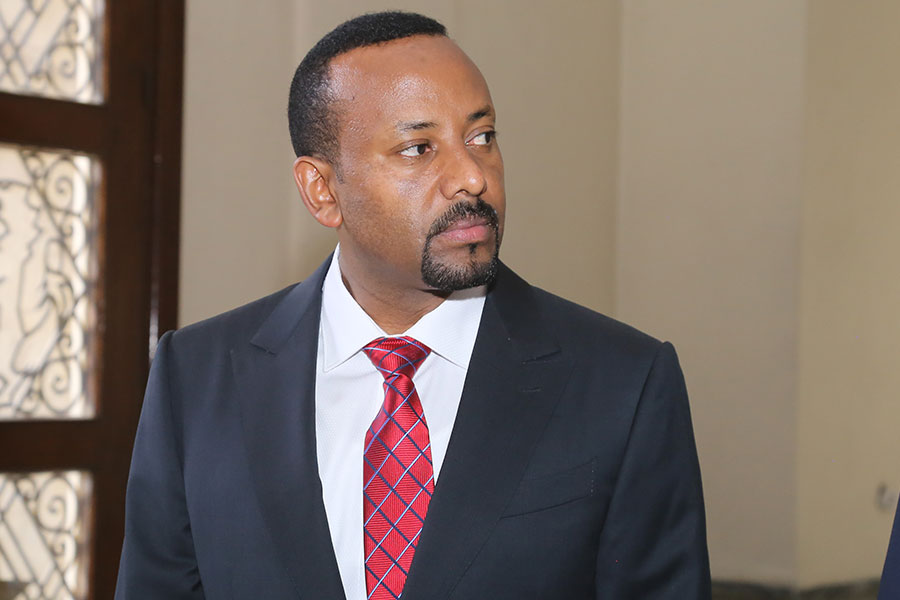
Fortune News | Mar 30,2019
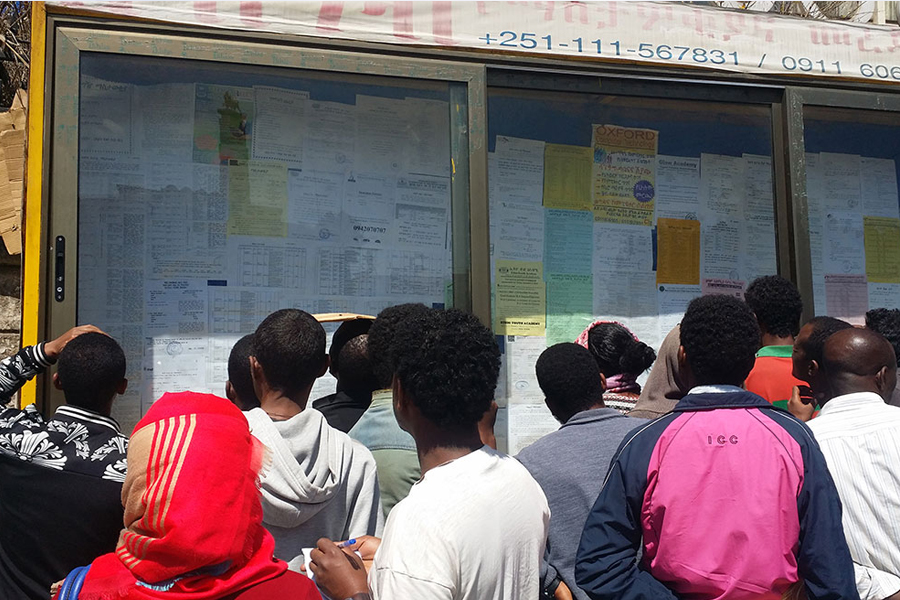
Agenda | Jul 22,2023

Fortune News | Apr 16,2022

Radar | Mar 23,2024

Dec 22 , 2024 . By TIZITA SHEWAFERAW
Charged with transforming colossal state-owned enterprises into modern and competitiv...

Aug 18 , 2024 . By AKSAH ITALO
Although predictable Yonas Zerihun's job in the ride-hailing service is not immune to...

Jul 28 , 2024 . By TIZITA SHEWAFERAW
Unhabitual, perhaps too many, Samuel Gebreyohannes, 38, used to occasionally enjoy a couple of beers at breakfast. However, he recently swit...

Jul 13 , 2024 . By AKSAH ITALO
Investors who rely on tractors, trucks, and field vehicles for commuting, transporting commodities, and f...

Oct 25 , 2025
The regulatory machinery is on overdrive. In only two years, no fewer than 35 new pro...

Oct 18 , 2025
The political establishment, notably the ruling party and its top brass, has become p...

Oct 11 , 2025
Ladislas Farago, a roving Associated Press (AP) correspondent, arrived in Ethiopia in...

Oct 4 , 2025
Eyob Tekalegn (PhD) had been in the Governor's chair for only weeks when, on Septembe...